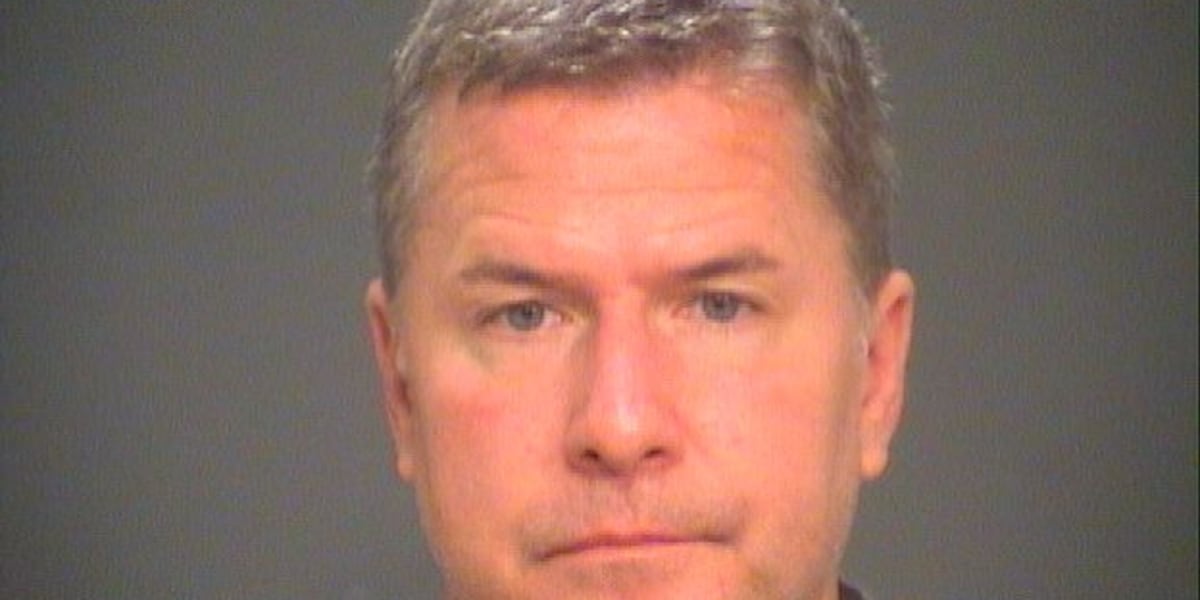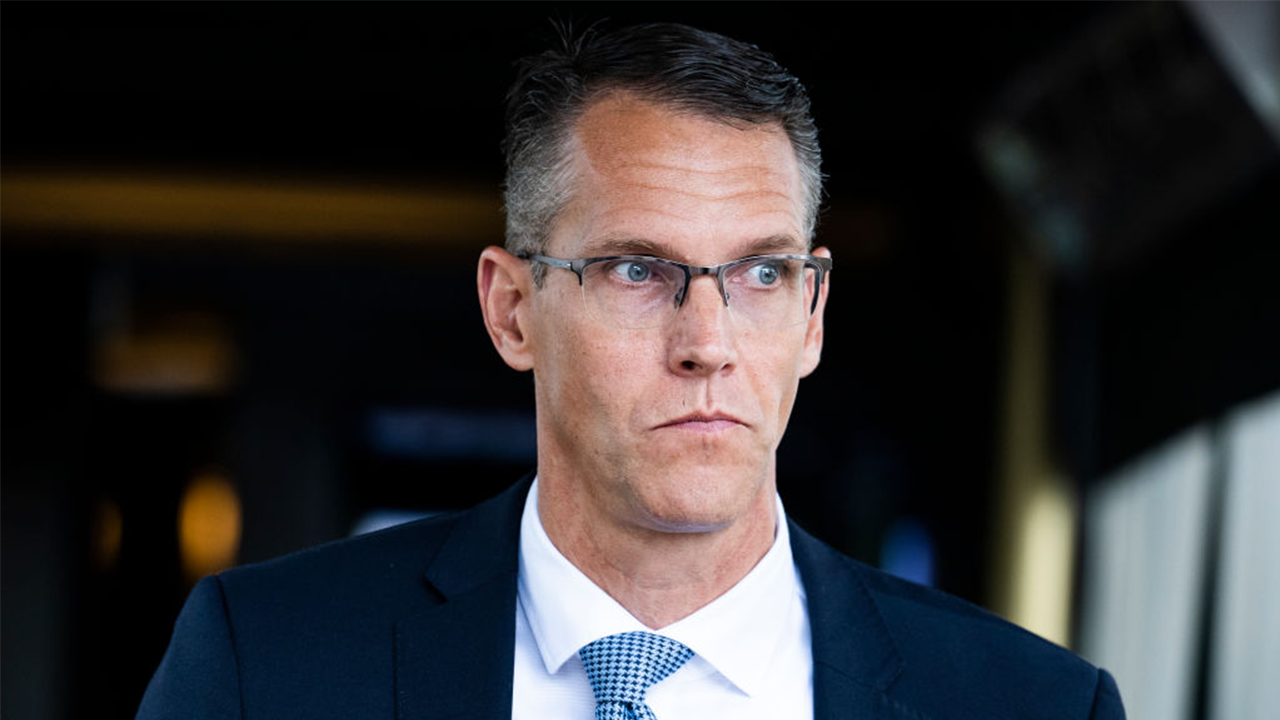Kentucky
Kentucky State Fair announces special ticket days
/cloudfront-us-east-1.images.arcpublishing.com/gray/2KLXOC576JBQRAX5C26NO2ETTE.jpg)
LOUISVILLE, Ky. (WAVE) – The Kentucky State Fair is approaching quickly, and event organizers have announced themed days and special discounts ahead of the fair’s return.
Discounts will be offered on multiple days during the fair, which runs from Aug. 17 through Aug. 27, according to a release.
Organizers said some discounts will pertain to specific individuals, while a single day will offer $5 admission to all fairgoers.
The complete list of promotional days are below:
- Aug. 17: County Fairs Day – The fair will highlight winners from county pageants and competitions with special activities all day.
- Aug. 20: Military Day – All active military members and veterans, in addition to their families, will be able to attend the fair for free with a military ID. A limit to four free tickets are available, parking is not included.
- Aug. 21: $5 Monday – $5 admission for all fairgoers which includes parking.
- Aug. 22: Senior Day – Anyone age 55 or older can attend the fair for free. Special activities are planned throughout the day. Parking is not included.
- Aug. 23: Sensory Awareness Day – Free admission and Thrill Ville tickets will be given to fairgoers with sensory processing differences. From 10 a.m. until noon, Thrill Ville will operate with minimal lights and music to create an enjoyable experience for those with sensory sensitivities. The event is sponsored by Kissel Entertainment, FEAT of Louisville, Home of the Innocents and the Kentucky Autism Training Center.
Early bird admission to the Kentucky State Fair is available now for $9 a ticket and includes parking. Tickets are available online or at participating Kroger stores and the Kentucky Exposition Center box office.
Copyright 2023 WAVE. All rights reserved.

Kentucky
Kentucky QB Zach Calzada continues to be disrespected by the national media

There are not very high expectations for this Kentucky football team, and the fan base continues to grow more and more impatient with Mark Stoops.
After Will Levis left for the NFL, the coaching staff has gone 0-2 in the transfer portal at quarterback despite high expectations for both Devin Leary and Brock Vandagriff.
The Wildcats have once again brought in a transfer portal quarterback who will likely be the starter, and that is Zach Calzada. Last season, Calzada played at Incarnate Word, but he has made two stops in the SEC at Texas A&M and Auburn.
Brad Crawford of 247Sports ranked all of the projected starting quarterbacks in the SEC, and he had Calzada ranked dead last.
Here is what Crawford had to say about Calzada and why he had him ranked 16th: “Expectations are low involving Calzada, the latest transfer quarterback to assume starting honors for the Wildcats. The Brock Vandagriff experiment worked out poorly, and Mark Stoops prays this former Texas A&M quarterback can execute the game plan with more precision.”
Calzada put up elite numbers at Incarnate Word and beat a Nick Saban-led Alabama team while at Texas A&M, so he has proven to be a capable quarterback.
The veteran signal caller has made it clear that he is playing with a chip on his shoulder, and the disrespect from these types of ranking lists will fuel him this offseason. Calzada is a good quarterback who has been dying for another opportunity in the SEC after a bad stop at Auburn, and he will get that this season in Lexington.
Kentucky
Kentucky Derby-winning Jockey Junior Alvarado to appeal fine, suspension from HISA per report

Preakness 2025 race won’t include Kentucky Derby winner Sovereignty
After Sovereignty’s win at the Kentucky Derby, horse racing handicapper Ed DeRosa talks about future of the Triple Crown and Preakness Stakes 2025.
- Jockey Junior Alvarado is appealing a fine and suspension for excessive crop use in the Kentucky Derby.
Jockey Junior Alvarado is appealing his fine and suspension given to him by the Horseracing Integrity and Safety Authority. Alvarado’s agent, Mike Sellitto, said the ruling is under appeal, according to Byron King of Bloodhorse.com reporting.
Alvarado was fined $62,000 and suspended two days as the result of excessive crop use during his winning ride on Sovereignty in the Kentucky Derby on May 3 at Churchill Downs.
HISA ruled Alvarado used his crop eight times on Sovereignty, when the rule is that jockeys may use their crops no more than six times.
The penalty is 10% of the jockey’s earnings from the race — which would be $31,000 for the Kentucky Derby — and a one-day suspension. Since this was Alvarado’s second violation in the last 180 days, his penalty was doubled.
On Courier Journal columnist C.L. Brown’s podcast, Alvarado said, “I forgot it was a rule. … I was seeing my dream coming true right in front of me. The whip rule was the last thing I had in my mind. I have to pay the consequences, I guess.”
Sovereignty will not run in the Preakness on May 17 and is expected to return for the final leg of the Triple Crown, the Belmont on June 7 at Saratoga.
Reach sports reporter Prince James Story at pstory@gannett.com and follow him on X at @PrinceJStory.
Kentucky
Salary bump for mayor? More city commissioners? How a city is changing its government
COVINGTON, KY. – The mayor of Covington will likely have a lot more power by 2029 – and a higher paycheck.
Those changes are among several that city commissioners will consider in the coming weeks as local committee members reconfigure how government and day-to-day operations in Northern Kentucky’s largest city should run.
For the first time in about a century, the city is moving away from a city manager-run form of government to what’s known as a strong mayor system. It’s part of an overhaul voters approved last fall. The changes will go into effect in 2029.
Here’s what you need to know about the government changes:
Why is the Covington government changing?
About 61% of voters cast a ballot in favor of the changes that include a strong mayor system.
That style of government gives the mayor direct authority over city departments, staff and the general day-to-day running of the city.
It also eliminates the position of city manager, who has traditionally had those responsibilities and acted as a buffer between elected officials and city staff.
The Committee on Form of Government Transition was created after the election to hash out the changes. Roughly 30 to 40 people applied to be on the committee. Nine voting members and seven non-voting members were selected from that pool.
Since January, the committee has met three times a month, conducted surveys, hosted two in-person forums, and solicited online and mail-in feedback about the process.
What will change?
Last week, Committee Administrator Sebastian Torres presented the group’s first recommendations to Covington city commissioners at a caucus meeting. They include:
- A 185% increase in the mayor’s salary from $33,395.58 annually to a maximum of $95,335.76.
- A 33% pay decrease for city commissioners from $26,680.73 annually to a maximum of $17,787.15.
- Six city commissioners instead of four.
Torres told The Enquirer the proposed pay rates were primarily based on two factors: comparative data from other Kentucky cities and the expected workload change for elected officials.
“Currently, the mayor is working 50-plus hours a week,” he said. “If we’re going to encourage anyone, who’s frankly not retired … to run for this position … the position is going to need to have a (market rate) full-time salary attached to it.”
A higher salary will be necessary when the city no longer has a city manager and the mayor takes on additional duties, Torres said.
Other similarly sized cities in Kentucky, like Florence and Georgetown, pay their mayors salaries in the same range, according to data collected by the committee.
Meanwhile, Torres said, the workload for commissioners will decrease because they will no longer have to vote on issues like employment contracts.
The committee is recommending a larger county commission based on the data, surveys of residents and in-person comments, Torres said. He provided copies of the surveys which reflect that preference.
What’s next?
In the coming weeks, commissioners could approve, deny, or ask for changes to the committee’s recommendations.
They’ll do that for the first time at the city council meeting at 6 p.m. May 13 at city hall.
If commissioners approve the recommendations as-is, they’ll consider them again in a second reading, which could happen as soon as May 27.
Meanwhile, the committee will keep working on other government change details.
“Now we’re going to turn our attention to the city government structure, how we do things, and look for opportunities to kind of reshape how the government is, in itself, a body, (and) how we get our work done,” Torres said.
Committee meetings are open to the public and include a public comment period. The committee meets at 5:30 p.m. on the fourth Thursday of each month at city hall, with more information on the Covington city website.
-

 Cleveland, OH1 week ago
Cleveland, OH1 week agoWho is Gregory Moore? Former divorce attorney charged for murder of Aliza Sherman in downtown Cleveland
-

 News1 week ago
News1 week agoFamily statement: Rodney Hinton Jr. walked out of body camera footage meeting with CPD prior to officer death
-

 Politics1 week ago
Politics1 week agoTrump posts AI image of himself as Pope amid Vatican's search for new pontiff
-

 Austin, TX3 days ago
Austin, TX3 days agoBest Austin Salads – 15 Food Places For Good Greens!
-

 Education1 week ago
Education1 week agoIn Alabama Commencement Speech, Trump Mixes In the Political
-

 Technology7 days ago
Technology7 days agoBe careful what you read about an Elden Ring movie
-

 Culture1 week ago
Culture1 week agoPulitzer Prizes 2025: A Guide to the Winning Books and Finalists
-

 News1 week ago
News1 week agoFather Whose Son Was Shot by Cincinnati Police Hits Deputy With Car, Killing Him
















